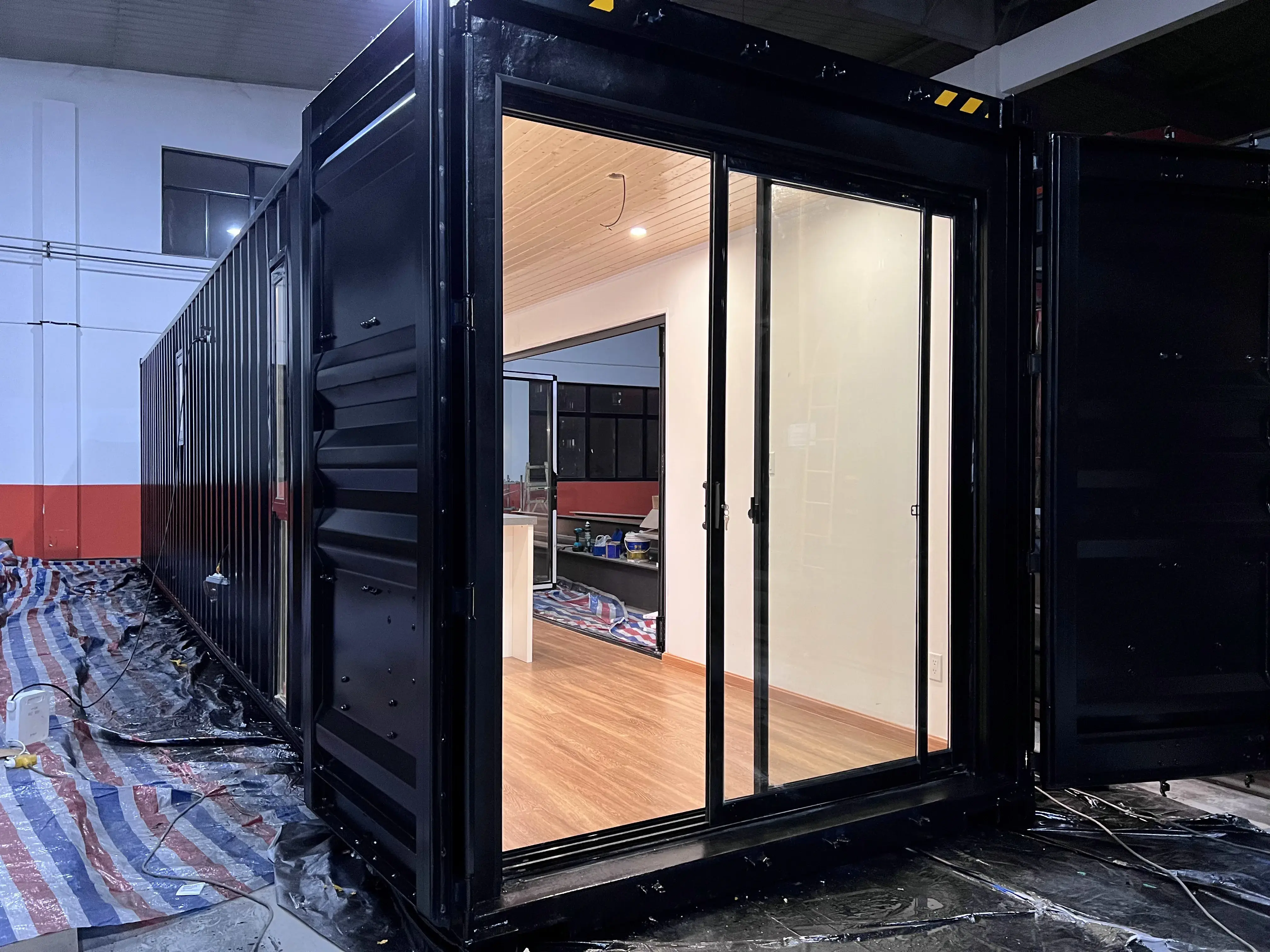Email format error
Email cannot be empty
Email already exists
6-20 characters(letters plus numbers only)
The password is inconsistent
Email format error
Email cannot be empty
Email does not exist
6-20 characters(letters plus numbers only)
The password is inconsistent


In recent years, there has been a notable shift in the housing market towards more sustainable and environmentally-friendly living solutions. One such trend gaining momentum is the adoption of turnkey container homes. These innovative dwellings offer a range of benefits, from cost-effectiveness to customizable design options, all while promoting eco-conscious living. In this article, we'll delve into the concept of turnkey container homes, explore their sustainable features, discuss their potential for off-grid living, and address common questions and misconceptions surrounding this growing phenomenon.
Turnkey container homes, derived from repurposed shipping containers, provide a unique and efficient housing solution. These structures are prefabricated off-site and delivered to the desired location, ready for immediate occupancy. Their popularity stems from several key benefits.
Firstly, turnkey container homes offer cost-effectiveness compared to traditional construction methods. The use of repurposed containers reduces material costs, while the streamlined construction process minimizes labor expenses. Additionally, their modular nature allows for quick assembly, resulting in significant time savings.
Furthermore, turnkey container homes boast unparalleled durability and strength. Constructed from corten steel, these containers are designed to withstand harsh weather conditions and transportation stresses. This durability translates to long-term savings for homeowners, as maintenance costs are significantly reduced.
Despite their industrial origins, turnkey container homes offer endless customization options. From sleek, minimalist designs to luxurious interiors, these homes can be tailored to suit individual preferences and lifestyles. This versatility appeals to a wide range of homeowners, from young professionals seeking affordable housing solutions to eco-conscious families embracing sustainable living.
One of the most compelling aspects of turnkey container homes is their contribution to sustainable living. By repurposing shipping containers, these homes help reduce the environmental impact of traditional construction methods. Rather than allowing discarded containers to languish in ports or landfills, they are transformed into functional living spaces, thus minimizing waste.
Additionally, turnkey container homes promote energy efficiency through innovative design features. Advanced insulation materials ensure optimal climate control, reducing the need for heating and cooling systems. Moreover, the integration of renewable energy sources such as solar panels and wind turbines further reduces reliance on non-renewable energy sources, lowering carbon emissions and energy costs.
Furthermore, the compact nature of container homes encourages a minimalist lifestyle, promoting conscious consumption and reducing environmental footprints. By embracing a simpler way of living, homeowners can cultivate a greater appreciation for their surroundings and prioritize sustainability in all aspects of their lives.
Turnkey container homes also offer an ideal solution for off-grid living, providing self-sufficiency and independence from traditional utilities. With the right adaptations, these homes can thrive in remote locations or areas with limited infrastructure.
Renewable energy sources play a crucial role in off-grid container living. Solar power systems harness the sun's energy to generate electricity, while wind turbines utilize wind power to supplement energy production. These sustainable energy solutions not only reduce reliance on fossil fuels but also offer long-term cost savings for homeowners.
In addition to energy independence, off-grid container homes incorporate water management systems to ensure sustainability. Rainwater harvesting systems collect rainwater from the roof, which can then be filtered and stored for various uses, such as irrigation and household chores. Greywater recycling systems further optimize water usage by treating wastewater from sinks and showers for reuse in non-potable applications.
Moreover, off-grid container living encourages sustainable lifestyle practices such as organic gardening and composting. By growing their own food and composting organic waste, homeowners can reduce their ecological footprint and live in harmony with nature.
As interest in turnkey container homes continues to grow, it's important to address common questions and misconceptions surrounding this housing alternative.
Structural integrity and safety are often cited as concerns by potential homeowners. However, reputable container home providers adhere to strict building codes and regulations to ensure the structural integrity of their homes. Additionally, professional engineers can assess the site and provide recommendations to address any safety concerns.
Legal and zoning regulations vary by location, so it's essential for homeowners to research local ordinances before purchasing a container home. While some areas may have restrictions on container housing, many jurisdictions are embracing these innovative dwellings as a sustainable housing solution.
In conclusion, turnkey container homes offer a sustainable and cost-effective alternative to traditional housing. By repurposing shipping containers, these homes minimize waste and promote eco-conscious living. With their off-grid capabilities and customizable design options, container homes are revolutionizing the way we think about sustainable housing. As interest in container living continues to grow, it's important to address common questions and misconceptions to help homeowners make informed decisions about this innovative housing solution.